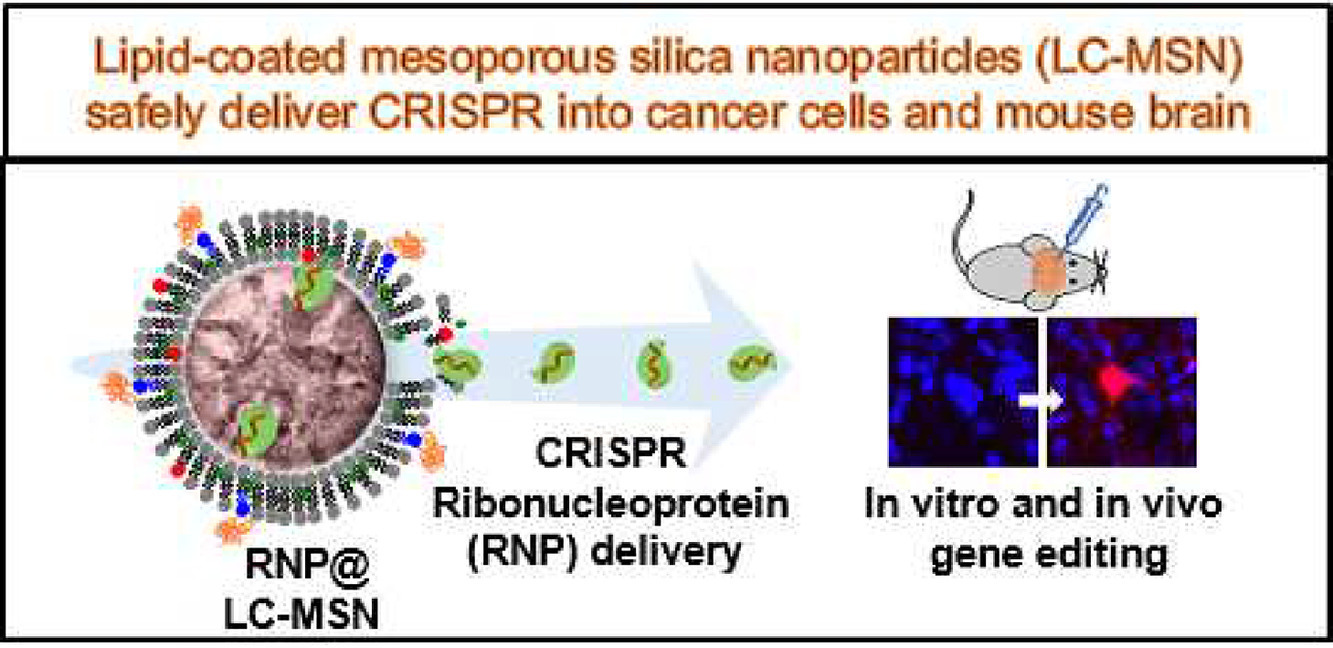Recent News
UNM Engineering team wins ASEE best paper for work on first-year engineering course
July 17, 2025
New director will enhance interdisciplinary engineering learning opportunities
July 2, 2025
Final SIRI cohort visits UNM campus
June 30, 2025
Perfetti receives ANS Landis Engineering Achievement Award
June 26, 2025
News Archives
Project sheds new light on cancer-treatment delivery
November 17, 2020 - by Kim Delker

A team of researchers at The University of New Mexico have recently developed a biomimetic nanoparticle capable of delivering gene-editing technology into a mouse brain and highlights for the first time the use of mesoporous silica-based system for CRISPR delivery into cervical and lung cancer cells.
The team is led by C. Jeffrey Brinker, Distinguished Professor Emeritus in the Department of Chemical and Biological Engineering, and Achraf Noureddine, research assistant professor in the Department of Chemical and Biological Engineering, as well as Professor Rita E. Serda in the Department of Internal Medicine at the UNM School of Medicine. The work, “Engineering of monosized lipid-coated mesoporous silica nanoparticles for CRISPR delivery,” was published this fall in the journal Acta Biomaterialia.
This work was done in collaboration with Sandia National Laboratories and Jennifer Doudna, a University of California, Berkeley, biochemist who received the 2020 Nobel Prize in Chemistry along with Emmanuelle Charpentier for developing a groundbreaking method for genome editing.
The UNM team is planning to continue their collaboration with the different institutions involved in this project.
